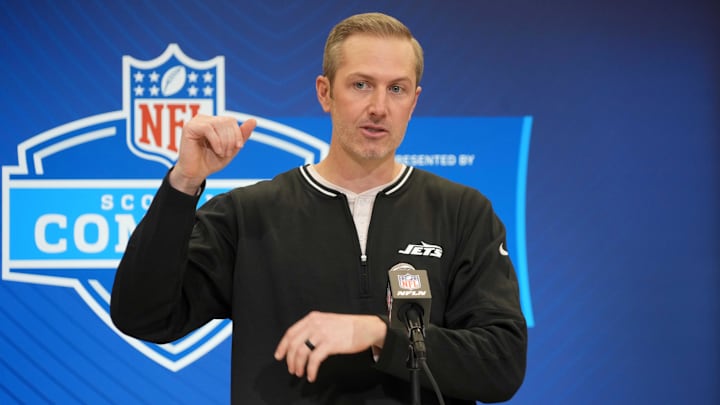The New York Jets’ new leadership group of general manager Darren Mougey and head coach Aaron Glenn made their intentions clear this week. The goal is to reshape the Jets' roster in their vision, and to do so, they might be forced to make some difficult decisions.
Mougey and Glenn shipped out All-Pro cornerback Sauce Gardner and star defensive tackle Quinnen Williams mere hours from each other just ahead of Tuesday's NFL trade deadline. It was a pair of moves that reshaped the entire direction of the franchise.
But it also sent a message to fans, NFL personnel, and anyone who was keen enough to pay attention. This roster — the one Mougey and Glenn inherited roughly nine months ago — isn't as good as it was made out to be.
Sports Illustrated's Albert Breer captured that sentiment earlier in the week when he said the new Jets brass is “basically telling you the talent they inherited was overrated.”
That isn't to say that Mougey and Glenn believed Gardner and Williams, specifically, were overrated, but the collection of players on the current roster clearly wasn't yielding results. The trades were less about the individuals and more about the current state of the organization.
Timing is just as important as talent for Darren Mougey and the Jets
Mougey and Glenn didn’t see a foundation worth preserving from the previous regime. They chose a full reset — and draft assets — over patchwork solutions. Gardner and Williams were viewed as franchise pillars, players the organization could build around for years. Moving both in one day signaled how drastically the new front office views the roster.
The Jets now hold five first-round picks and three second-rounders across the next two drafts. It’s a massive pool of assets that gives them freedom to rebuild at their own pace.
Building a sustainable contender in the NFL is about more than talent — it’s about timing. The best organizations align every part of their operation around the same clock. The financial plan, the quarterback’s development, and the roster’s age curve all have to move in sync.
When one of those timelines drifts out of rhythm, everything starts to wobble. That was where the Jets were earlier in the week.
Mougey and Glenn are trying to reset the organization’s internal clock. The roster they inherited was mismatched with expensive defensive stars in their primes, a quarterback situation still unsettled, and a supporting cast that wasn’t built to grow together.
The trades of Gardner and Williams were about recouping picks, sure, but they were also about creating organizational alignment. By flipping high-cost veterans for future assets, the Jets are trying to line up their next core — a young quarterback, cheap rookie contracts, and a financial window that all crest together around 2027 or 2028.
The risk is obvious. Trading two All-Pros in their primes is a dangerous move if the picks don’t pan out or if the locker room falls apart. But this front office is operating with conviction. They believe in their plan and in Glenn’s ability to keep the team competitive while the roster turns over.
Whether fans buy into that vision is another story. The message, though, could not be clearer: the new Jets regime doesn’t believe it inherited the foundation of a future contender. It believes it inherited a flawed product that needs to be rebuilt from the ground up.
For the first time in years, the Jets have stopped pretending to be something they aren't. The teardown is real, the plan is long-term, and the results will ultimately define everything about what this era becomes.
